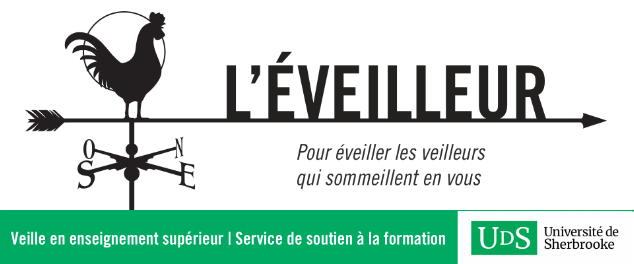Le quotidien britannique The Guardian présentait récemment une série de sept articles fouillés en sept jours intitulée « Battle for the Internet ». Il y est question des « champs de bataille » actuels qui minent le rêve d’un Internet ouvert, permettant un accès à l’information égal pour le plus grand nombre. Cyberattaques, états qui limitent l’accès aux voix dissidentes, guerres de propriété intellectuelle, « hacktivistes » résistants, fin de la vie privée, etc. Passionnant, mais dense.
Un proche m’a recommandé le troisième article de la série sur des contraintes plus subtiles d’accès à l’information amenées par les technologies (Web ou mobiles) que nous utilisons pour accéder aux contenus (par exemple, lorsque nous transitons systématiquement par Facebook, Google ou par des applications (aps) d’Apple). L’article nomme ces « enclos » que nous nous imposons parfois (mais qui nous sont aussi souvent imposés par les fabricants) des « jardins murés » (walled gardens), expression que j’ignorais mais qui fut définie sur Wikipedia dès 2o03: « More generally, a “walled garden” refers to a closed or exclusive set of information services provided for users. This is in contrast to giving consumers unrestricted access to applications and content. Similar to a “real” walled garden, a user in a walled garden is unable to escape this area unless it is through the designated entry/exit points or the walled garden is removed. »
En nous préservant du web « sauvage » dans des environnements « confortables » qui filtrent pour nous l’information, nous sommes peut-être en train de nous couper de plusieurs sources. C’est ainsi que des pays totalitaires peuvent limiter l’accès de leurs citoyens à certaines renseignements en demandant à la compagnie de le faire (ex : Facebook en Syrie). On donne également l’exemple assez connu du code moral de Facebook basé sur un puritanisme très américain en vue de conserver le plus d’annonceurs possibles (par exemple : les photos de femmes allaitantes sont retirées si on y distingue un mamelon). On rappelle aussi la nécessité de passer par le fournisseur d’un produit pour obtenir des logiciels (ex : Apple). Une seule exception dans l’univers fermé des appareils mobiles, le système Android de Google. On y explique cependant bien que le modèle d’affaires de Google ne fonctionne que si l’Internet est le plus ouvert possible – et indexé par Google, il va sans dire…
Quelques extraits :
- « Personal computers are “generative”: they can be programmed to do more than they were set up to. Smartphones, on the other hand, generally can’t be programmed directly by the user. For the most part, they’re appliances, as limited in what they can do as a coffee maker. »
- « The fears about “walled gardens” sometimes reflect concerns that are as much about business models as principles.
Facebook does not let Google or any other site index the vast majority of its content; a tiny file called robots.txt on its homepage stops search engines from grabbing details of photos, feeds or other data. Only the most limited information can cross that wall – and that worries Google, which relies on being able to index everything (don’t forget its mission statement: “organise the world’s information and make it universally available”) and then to sell adverts against it.» - « …”The open web is full of spam, shady operators and blatant falsehoods. Outside of a relatively small percentage of high-quality sites, most of the web is chock full of pop-up ads and other interruptive come-ons.
“It’s nearly impossible to find a signal in that noise, and the web is in danger of being overrun by all that crap. In the curated gardens of places like Apple and Facebook, the weeds are kept to a minimum, and the user experience is just … better.” [selon John Battelle, un publicitaire Internet]» - « [Jonathan] Zittrain [professeur de cyber-législation à Oxford et Harvard] has expressed fears about how the devices we use to connect to the net have moved away from being fully capable personal computers – where in theory you can write programs that can use any capability of the computer – towards appliances such as the iPad or iPhone, with tightly limited functionality and access to the underlying operating system software, where only “allowed” programs can be installed from a vendor-maintained store. He calls such a process “tethering”. »
- «Adding new programs will be hard; in effect, websites will become the new programs. Zittrain notes that although you can still side-load software – that is, transfer it from another source, such as the internet or a memory stick connected to the machine, that is a reversal from the paradigm that ruled for years. »
- « …Media commentator Jeff Jarvis says Apple’s iPad is “sweet and pretty but shallow and vapid … I see danger in moving from the web to apps,” he said. “The iPad is retrograde. It tries to turn us back into an audience again.”»
Source : Arthur, Charles, « Walled gardens look rosy for Facebook, Apple – and would-be censors », The Guardian, 17 avril 2012.






